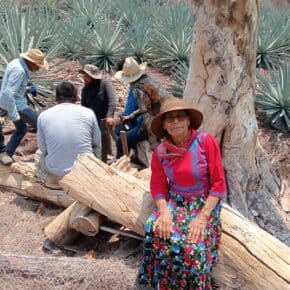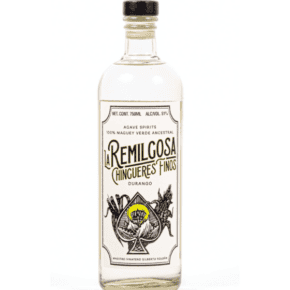A Palenque is where mezcal is made in the natural, artisanal and traditional way (generally open sides, dirt or rudimentary floors and located in smaller pueblos.) The Palenquero is the mezcal maker. This process has been fine tuned over the last 500 or so years.
The cut maguey piñas (heart of the maguey plant) are roasted in deeply dug pits. Stones at the bottom of the pit are heated by an intense wood fire clambake style. The piñas are loaded in, covered and roasted anywhere from 3-7 days depending on the conditions (temperature, humidity) and the Palenquero’s recipe.
After the piñas have cooled, they are moved into a round, stone lined and banked mill. A giant stone wheel, attached to a horse (or sometimes a tractor in larger palenques) then presses the piñas.
As the piñas are broken down into a mash, it is moved to fermenting barrels, where they remain for 24-72 hours (or more, again depending on conditions.)
Once the fermentation process is completed, everything (mash and liquid) is moved to the copper distillers. After the first distillation, the liquid is drained and the mash removed. Depending on the palenquero and the mezcal, it can be distilled 2-3 times.
A joven mezcal is ready to be consumed right away. A reposado is generally aged at least 6 months in an oak barrel. An añejo is aged for more than a year in an oak barrel.













Leave a Comment